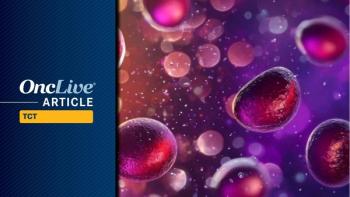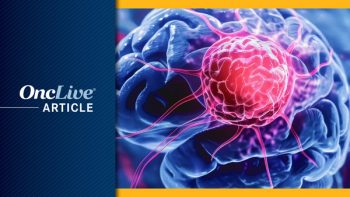
Candidates for CAR T-Cell Therapy in DLBCL
Transcript:
Stephen J. Schuster, MD: Diffuse large B-cell lymphoma, one of the most common hematologic malignancies, is a disease that currently our primary therapy is successful in about two-thirds of patients. Unfortunately, this very successful frontline therapy has resulted in a decreased ability to have satisfactory second-line therapy that can achieve durable remissions.
The CAR (chimeric antigen receptor) T-cell technology has filled this space now and can be offered to those patients who either don’t respond to frontline immunochemotherapy, who have an early relapse within the first year, or those who have gone on and had stem cell transplants and relapsed, a form of therapy that can lead to a durable remission. If I had 100 patients, theoretically, with relapsed or primarily refractory diffuse large B-cell lymphoma, only about half of them are going to be eligible for a stem cell transplant; the other half won’t be because of comorbidities, age, etc. Of those 50 patients who are eligible, only half are going to go into remission with second-line chemotherapy and be transplant eligible. So, now you have another 75 of those patients who are not going to be eligible for transplant. Of the 25 who are in remission and go to transplant, about 10 of them will be long-term remitters and 15 will move over into the space of recurrence after transplant. The majority of patients that either fail to respond, or relapse early after primary immunochemotherapy, are candidates for CAR T-cell therapy.
Nowadays, patients who fail primary immunochemotherapy for large B-cell lymphoma will be, in most cases, candidates for CAR T-cell chemotherapy. The standard therapy for these patients is a stem cell transplant, but the majority will either not be candidates for that procedure if they fail salvage chemotherapy and don’t make it to transplant, or because of age or comorbidities. These are all patients that will potentially be candidates for CAR T-cell therapy. I think it’ll be much more broadly applicable to people who fail frontline therapy than stem cell transplant, which is our current approach.
The label for the 2 approved products, Yescarta (axicabtagene ciloleucel) and Kymriah (tisagenlecleucel), require a failure of 2 prior chemotherapy regimens, but that really doesn’t change the number of patients ultimately, that will be candidates for this form of therapy.
Transcript Edited for Clarity




































